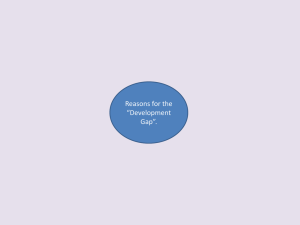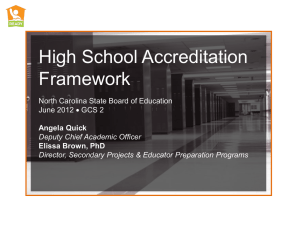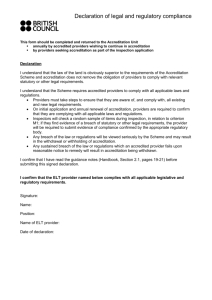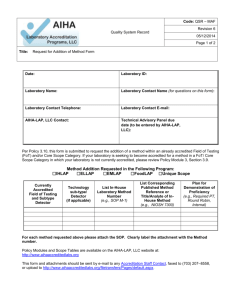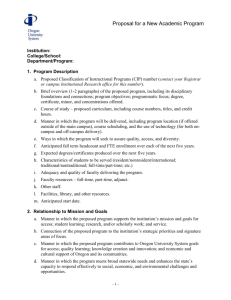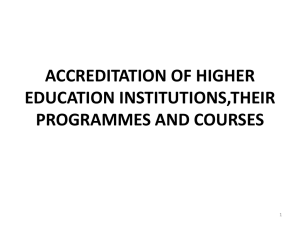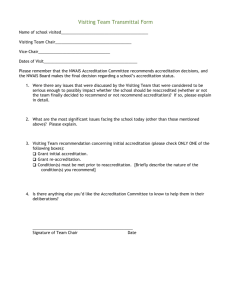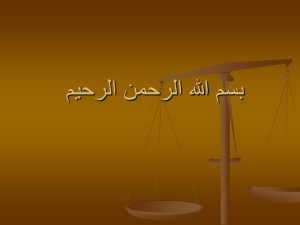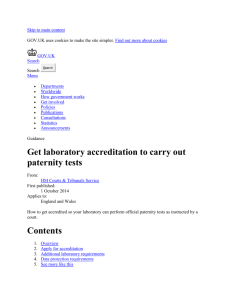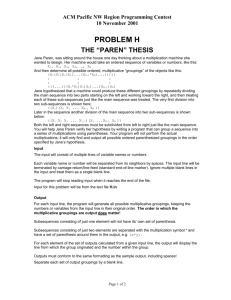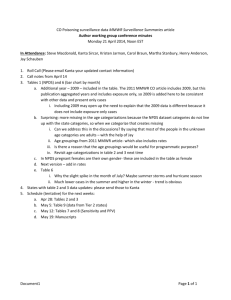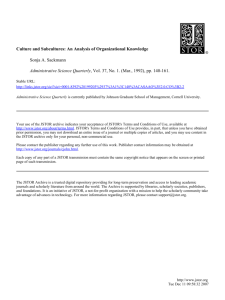Application Check-list for Accreditation Proposals
advertisement
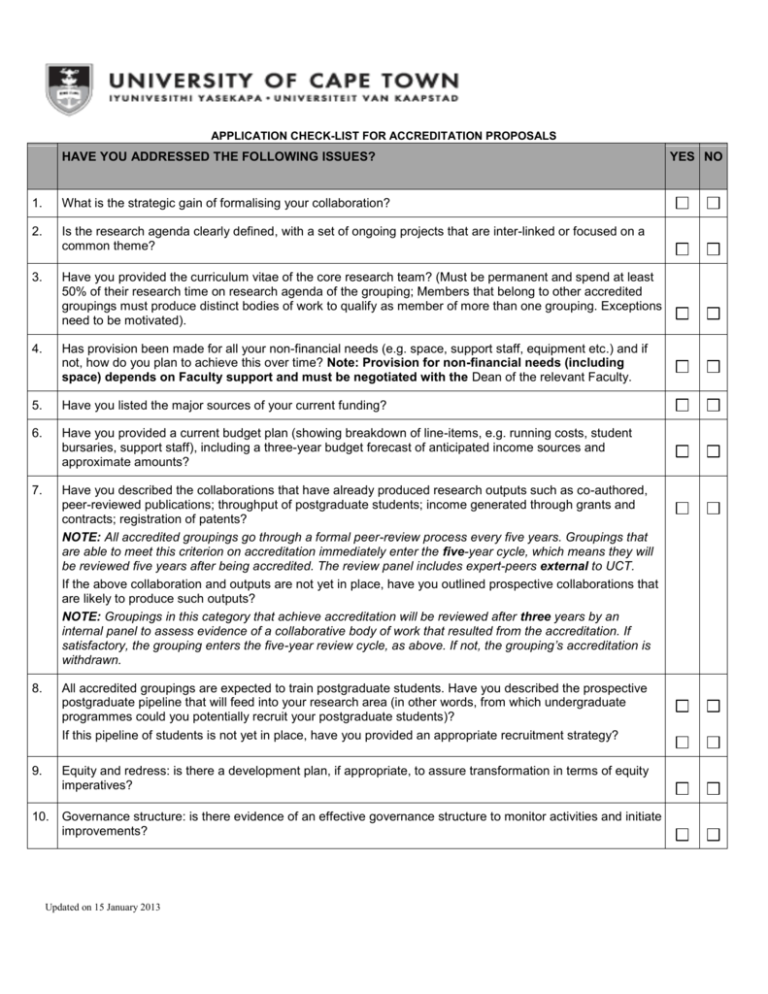
APPLICATION CHECK-LIST FOR ACCREDITATION PROPOSALS HAVE YOU ADDRESSED THE FOLLOWING ISSUES? 1. What is the strategic gain of formalising your collaboration? 2. Is the research agenda clearly defined, with a set of ongoing projects that are inter-linked or focused on a common theme? 3. Have you provided the curriculum vitae of the core research team? (Must be permanent and spend at least 50% of their research time on research agenda of the grouping; Members that belong to other accredited groupings must produce distinct bodies of work to qualify as member of more than one grouping. Exceptions need to be motivated). 4. Has provision been made for all your non-financial needs (e.g. space, support staff, equipment etc.) and if not, how do you plan to achieve this over time? Note: Provision for non-financial needs (including space) depends on Faculty support and must be negotiated with the Dean of the relevant Faculty. 5. Have you listed the major sources of your current funding? 6. Have you provided a current budget plan (showing breakdown of line-items, e.g. running costs, student bursaries, support staff), including a three-year budget forecast of anticipated income sources and approximate amounts? 7. Have you described the collaborations that have already produced research outputs such as co-authored, peer-reviewed publications; throughput of postgraduate students; income generated through grants and contracts; registration of patents? NOTE: All accredited groupings go through a formal peer-review process every five years. Groupings that are able to meet this criterion on accreditation immediately enter the five-year cycle, which means they will be reviewed five years after being accredited. The review panel includes expert-peers external to UCT. If the above collaboration and outputs are not yet in place, have you outlined prospective collaborations that are likely to produce such outputs? NOTE: Groupings in this category that achieve accreditation will be reviewed after three years by an internal panel to assess evidence of a collaborative body of work that resulted from the accreditation. If satisfactory, the grouping enters the five-year review cycle, as above. If not, the grouping’s accreditation is withdrawn. 8. All accredited groupings are expected to train postgraduate students. Have you described the prospective postgraduate pipeline that will feed into your research area (in other words, from which undergraduate programmes could you potentially recruit your postgraduate students)? If this pipeline of students is not yet in place, have you provided an appropriate recruitment strategy? 9. Equity and redress: is there a development plan, if appropriate, to assure transformation in terms of equity imperatives? 10. Governance structure: is there evidence of an effective governance structure to monitor activities and initiate improvements? Updated on 15 January 2013 YES NO APPLICATION CHECK-LIST FOR ACCREDITATION PROPOSALS HAVE YOU ANSWERED THE FOLLOWING QUESTIONS? 11. Taking all of the above into account, do you propose classification of your grouping as a Unit, Centre or Institute? Please refer to Senate guidelines on the nomenclature of research groupings at www.researchoffice.uct.ac.za/strategic_initiatives/groupings/urc_accreditation/ a) b) c) Unit Centre Institute 12. All accredited groupings (including those that are multi-disciplinary) are required to have a departmental home for administrative purposes and for reasons of accountability. Is your application signed off by the relevant Head of Department? 13. All accredited groupings (including those that are cross-disciplinary) are required to have a Faculty home for administrative purposes and for reasons of accountability. Is your application signed off by the relevant Dean? Click for accreditation assessment criteria Updated on 15 January 2013 YES NO
